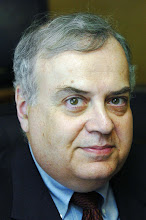The sounds of silence
Seriously, we prefer that everyone speaks to our reporters and editors when contacted for comments and/or extended interviews. But every so often, politicians get into snits for imaginary slights, or what they believe is unfair or unwarranted editorial criticism or alleged mistakes in articles (as in, "They can't get anything right!").
Allow me to let you on a little secret: In hindsight, even we occasionally come to the conclusion that some editorial criticism turned out to be unfair or unwarranted. And once in a while (although not nearly as often as critics would have you think), there are mistakes in newspaper stories. So, yes, it's possible a politician can have legitimate beefs with us.
But at the end of the day, who suffers when politicians decide not to talk to the local paper? It's not even close. We still print a paper without their contributions and they miss an opportunity to get their names and points of view out to their constituents in a venue readers have grown accustomed to seeing them.
To coin one of the first bromides I learned when I was a cub reporter, "Say whatever you want about me; just spell my name right." That's what public figures with perspective typically conclude vis a vis their relationships with the press.
From time to time, our paper has gone through the "I'm not talking to the Freeman" slow dance with a variety of politicians of all stripes. A couple of local biggies immediately come to mind. Like the others, eventually they cooled off and re-established lines of communication with us. Hopefully that will be the case with the current serenader of the sounds of silence.
And what if he doesn't change his mind and continues to give the Freeman the silent treatment? Simple: Reporters will write their stories without him. The editors will edit the stories and we'll publish a paper each day. Sometimes there'll be a hole in the story. Usually there won't be one.
There'll be no retribution on the newspaper's part -- we don't engage in that sort of game, although other publications have been known to do so, particularly in major markets. Meanwhile, the politician will seek other media and methods to get his name and face in front of the public. Maybe that work-around will be successful, maybe not.
Not long ago, after one politician stopped giving us the cold shoulder, I pointed out to him that if he thought the Freeman was too tough (or unfair), he ought to be on the other end of the onslaught he would face in a big city media environment. "We're pussycats," I told him.
 RSS
RSS


<< Home